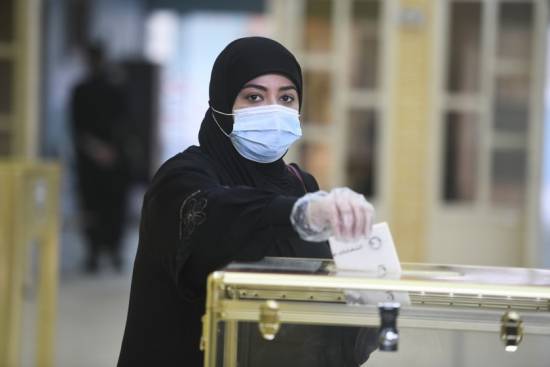Kuwait holds the first parliamentary election since the death of its longtime ruling emir Featured
Kuwaitis hoping for reform went to the polls on Saturday in a parliamentary election overshadowed by Covid-19, with facilities laid on for citizens infected with the disease to vote in special polling stations.
Kuwait has enforced some of the strictest regulations in the Gulf to combat the spread of the virus, imposing a months-long lockdown earlier this year.
While some of those curbs have been eased, over-the-top campaign events that traditionally draw thousands for lavish banquets were absent from this year’s election, while masks remain mandatory and temperature checks are routine when venturing outdoors.
Infected people or those under mandatory quarantine are usually confined to home, with electronic wristbands monitoring their movements.
But in an effort to respect their right to vote, authorities designated five polling stations -- one in each electoral district -- for them to cast their ballots, among the 102 across the country.
And on Saturday authorities set up security barriers around the polling stations to prevent gatherings, with designated lanes for entry and exit.
Mask-clad voters, who were also forced to wear gloves, were subject to temperature checks before entering the facilities where election officials stood behind glass barriers.
Unlike other oil-rich Gulf states, Kuwait has a lively political life with a parliament elected for four-year terms that enjoys wide legislative powers.
Political disputes are often fought out in the open.
But with more than 143,000 coronavirus cases to date, including 886 deaths, the election campaign has been toned down with a few banners hoisted over the streets. Instead, this year’s campaign has mainly been fought on social networks and in the media.
The usual themes are a constant though, from promises to fight corruption and plans to address youth employment, to freedom of expression, housing, education and the thorny issue of the “bidoon”, Kuwait’s stateless minority.
Some Kuwaitis have expressed their desire for change and reform in their country, where 70 percent of the 4.8 million population are foreigners.


